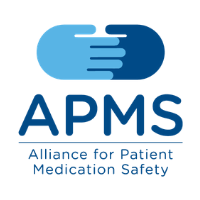July 17, 2024
BOOM! BAM! BANG! Does your pet have anxiety or fearful behaviors?
Like humans, pets can develop anxiety and fears. Fireworks are considered a normal tradition on holidays for some cultures but can also frequently trigger anxiety in pets and animals.
What are some common causes of anxiety in pets, and what should I look for?
Anxiety is described or defined as a “phycological, physiological, and behavioral state induced in animals and humans by a threat to well-being or survival, either actual or potential.”
Common causes of anxiety in animals include loud noises, threatening/unfamiliar situations, travel, and cruelty, abuse, or neglect, but anxiety can occur in animals from any background or training.
Signs of anxiety in your pet may include inappropriate urinating or defecating (for example, feline urinary marking), barking or howling, excessive chewing or destroying things, vomiting, trying to escape, pacing, and attempting to prevent you from leaving the house.
How can I treat anxiety in my pet?
Some non-medical behavioral interventions include crate training, behavioral modification training, or providing physical and mental stimulation to decrease stress. Exercise and calming coats or shirts can be explored to help treat the symptoms.
Compounding pharmacies can help with anxiety in animals by making pet-friendly flavored tablets and liquids or providing treatments in topical form. Here are some medication options you can talk through with your veterinarian:
- Common medications used for anxiety include Prozac (fluoxetine), trazodone, gabapentin, and buspirone. Gabapentin + trazodone combination flavored tablets are often compounded by specialty veterinary compounding pharmacies for difficult veterinarian visits or fear and anxiety.
- For improper elimination behaviors in cats, amitriptyline is often used.
- Flavored anti-nausea medications such as Cerenia (maropitant), Zofran (ondansetron), acepromazine, Benadryl (diphenhydramine) or Reglan (metoclopramide) may be appropriate for animals who have vomiting episodes during travel.
- A common regimen prescribed by veterinarians for fearful and aggressive dogs is called the CHILL Protocol. This combination includes gabapentin (given in the evening before the scheduled event/appointment), both gabapentin and melatonin administered 1-2 hours prior to the scheduled event or appointment, and acepromazine administered 30 minutes prior to the appointment/event. This relaxation protocol has been studied by Tufts University in both dogs and cats.
Whether your pet is afraid of fireworks, has episodes of vomiting during road trips, or dislikes grooming appointments, your veterinarian and compounding pharmacist are available resources to help your best friend feel safe and secure.
By Laura Brown, Pharmacist Manager of Customer Care, Wedgewood Pharmacy
















![Topi-CLICK a Division of TEAM Outlines[1]](https://a4pc.org/files/Topi-CLICK-a-Division-of-TEAM-Outlines1.png)
















